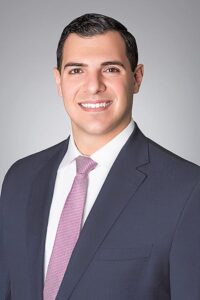
Article contributed by Joseph Tangredi, Ellenoff Grossman & Schole LLP
Last year there was an explosion of over 2,000 website disability accessibility lawsuits filed in New York federal courts, which sounded the alarm for many New York employers. These lawsuits allege that businesses’ websites violate the Americans with Disabilities Act (“ADA”), which prohibits discrimination against disabled individuals in the “full and equal enjoyment” of the goods and services of any “place of public accommodation.”
The majority of business leaders can surely agree that the ADA is well-intentioned. Americans with disabilities should be able to fully access the features on a company’s webpage irrespective of their disability. However, these lawsuits have been a thorn in the side of New York employers and the business community generally because many of these lawsuits are filed by only a handful of law firms on behalf of the same plaintiffs, or “testers.” “Testers” visit businesses’ websites with the sole purpose of uncovering violations of the ADA. Many times testers seek out the low-hanging fruit – companies who have existing website accessibility issues and have such alleged non-compliance with the ADA made public, usually on a separate website dedicated to outing these companies. Once identified, testers file complaints against these companies in federal court that consist of vague, cookie cutter claims alleging that they were not able to access the goods and services offered by the company’s website because of an alleged disability, such as if the user is visually impaired, whether or not the tester actually visited the website and intended to ever purchase goods from the website or utilize the company’s services via the website.
Until now, businesses have not had many notable victories in federal courts that changed the landscape in this area of the law. Employers may now feel some relief due to a recent ruling by the United States Court of Appeals for the Second Circuit which has appellate jurisdiction over the district courts in New York, Vermont and Connecticut, and has effectively elevated the burden necessary for plaintiffs to bring these lawsuits: the individual must sufficiently allege that they suffered a “concrete” and “particularized” injury. In Harty v. West Point Realty, the Second Circuit found that the plaintiff failed to meet this burden, and ruled that the plaintiff lacked standing, or the ability to bring the lawsuit. In that case, the plaintiff, a self-proclaimed “tester” who is disabled and uses a wheelchair, sued a hotel in West Point, Florida, based on claims that the hotel’s website did not have sufficient information about the property’s accessibility features available for people with physical disabilities. The plaintiff acknowledged that he visited the hotel’s website solely to determine whether the website complied with the ADA, and not as a potential guest with the intention of reserving a room.
The Second Circuit held that the plaintiff lacked standing to seek monetary damages because the plaintiff did not plan to visit the West Point hotel as a guest and therefore, he could not allege that “his ability to travel was hampered by West Point Realty’s website in a way that caused him concrete harm.” For a similar reason, the Second Circuit held that the plaintiff could not seek any prospective, non-monetary relief for his claims. Specifically, the plaintiff only asserted vague allegations that he intended to use the hotel’s website to reserve a guest room at some unidentified point in time in the future. The court determined that such assertions lacked specificity of any future plans to patron the hotel and were therefore, not sufficient to support a finding of injury that would warrant prospective relief. Further, the Second Circuit rejected the plaintiff’s claim that he suffered an “informational injury” due to the hotel’s website depriving him of sufficient information to travel without discrimination. The court reasoned that plaintiff must allege “downstream consequences” from not receiving the information in order to have an injury. In other words, the plaintiff must show that he had an interest in using the information, other than for the lawsuit. The court found that the plaintiff did not sufficiently allege such interest.
This ruling should be a welcome development for New York employers as the Second Circuit has raised the bar on the level of detail complaints must contain to be viable in federal courts, thus limiting the ability for plaintiff-side law firms to rely on boilerplate complaints in their lawsuits. Such heightened pleading standards hopefully slow down the proliferation of tester lawsuits and reserve such claims for those disabled individuals who have actual cognizable claims warranting relief and whom in good faith sought to use a business’s goods and services, but were unfortunately unable to do so.
Even with the promising Second Circuit decision, employers should continue to review their websites to ensure compliance with the ADA and avoid potential legal exposure in the future.
 Joseph Tangredi is an Associate at Ellenoff Grossman & Schole LLP in the firm’s Labor & Employment practice group. Joseph specializes in advising clients in the hospitality industry on labor and employment legal matters, and also defends his clients in labor arbitrations before the NLRB, and against wage/hour and discrimination claims brought in federal and state courts. Joseph Tangredi can be reached at JTangredi@egsllp.com or via phone at 212-370-1300.
Joseph Tangredi is an Associate at Ellenoff Grossman & Schole LLP in the firm’s Labor & Employment practice group. Joseph specializes in advising clients in the hospitality industry on labor and employment legal matters, and also defends his clients in labor arbitrations before the NLRB, and against wage/hour and discrimination claims brought in federal and state courts. Joseph Tangredi can be reached at JTangredi@egsllp.com or via phone at 212-370-1300.























